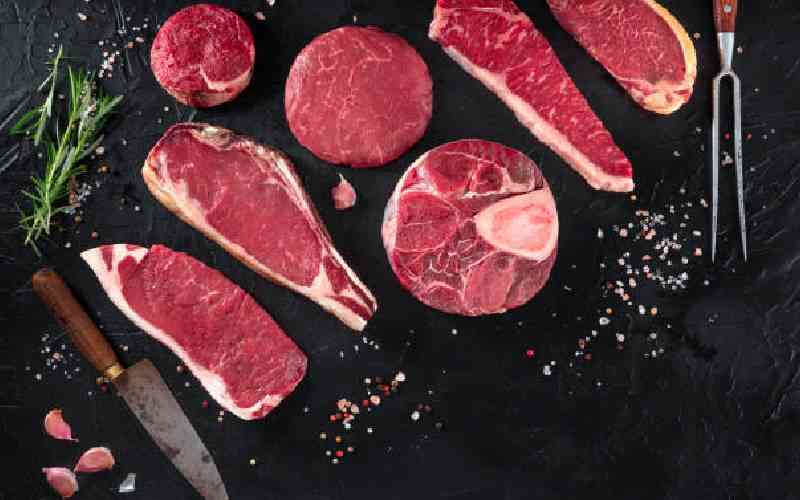
Nutritionists state that the average person is supposed to consume 0.8 grams per kilogram of meat but not on a daily basis. [iStockphoto]
Production of livestock around the world is linked to increased greenhouse gases in the atmosphere, which contributes to climate change.
Animal production for meat contributes twice as much to global warming as the production of plant-based food, according to scientific reports.
 The Standard Group Plc is a multi-media organization with investments in media
platforms spanning newspaper print
operations, television, radio broadcasting, digital and online services. The
Standard Group is recognized as a
leading multi-media house in Kenya with a key influence in matters of national
and international interest.
The Standard Group Plc is a multi-media organization with investments in media
platforms spanning newspaper print
operations, television, radio broadcasting, digital and online services. The
Standard Group is recognized as a
leading multi-media house in Kenya with a key influence in matters of national
and international interest.











